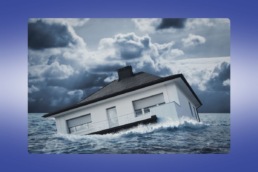What Are the Common Causes of House Floods?
With only one inch of unexpected water flooding your home, you can end up with a bill of over $25,000 in damages.
While sometimes house floods are accidents and can’t be avoided, you can do certain things to help prevent your home from a potential flood.
Wondering how you should go about protecting a house from unwanted water?
Read on to learn more about some of the main causes of house floods and what you can do to prevent them.
Broken Pipes
A broken pipe inside your home can cause massive damage very quickly. Pipes are made to be durable and withstand pressure. Yet, some things can cause a broken pipe, including:
- Storms
- Severe cold weather
- Tree roots
- Clogs
If a pipe bursts and the homeowner isn’t home, the water will run uncontrolled into the house until it’s noticed. This can cause significant damage, sometimes even flooding through multiple home floors.
As a homeowner, you want to be sure you have working shut-off valves to stop water from running if you have a broken pipe.
Poor Drainage
Poor drainage is the cause of flooding around a home. If you don’t have proper drainage at the street level around your home, or a drain is clogged, water can back up.
When water builds up around your home and has nowhere to go, it will eventually flood inside the house.
Likewise, after a significant build-up of snow and ice, when it melts, it can leak through spots in your room where there are small cracks or crevices when there’s enough water melting quickly.
Clogged Gutters
In the same spirit, another cause of flooding in and around your home can be clogged gutters.
Your gutters are intended to give water a path away from your home. When it rains hard or there’s a big melt, water needs a path away from your home.
If your gutters get clogged with leaves and debris, the water can’t move and drain as it should. The water sits in the gutters and can back up into your home, causing flooding.
Malfunctioning Appliances
There are many appliances in your home that use water to function, including:
- Dishwasher
- Washing machine
- Garbage disposal
- Water heater
- Air conditioner
If one of these appliances gets clogged or breaks, water can overflow and cause damage.
It’s important to drain and clean your water heater annually. You should also have a yearly air conditioner inspection to ensure everything is functioning well.
With other appliances, it’s important to monitor that the seals are working well so you don’t end up with leaks when they’re running.
Foundation Damage
Part of insurance for homes should cover flooding in the home. Like a rook leak that comes from the smallest crevice or opening in the roof, the same can happen with your foundation.
Over time, even the slightest breach in your foundation can mean water seeping into your home and causing flooding.
If you live in a flood zone, you may frequently find unwanted water around your home. It’s crucial for flood prevention to address any foundation issues that arise, or you’ll find you face water issues inside over and over.
Weather
Weather can also be a factor in flooding.
For those living in areas of the country prone to hurricanes, you could face flooding with excessive waves or waves during a storm.
You want flood insurance if your home is in any area close to water, like a lake, river, or ocean.
You could have water in your home if you get severe storms and water rises.
Even homes not adjacent to water might be at risk for water damage. A severe storm where a tree branch or other debris hits your home can cause damage and leave you susceptible to water.
Excess Snow and Ice Melt
You can have the most well-prepared home and still face potential indoor water damage when you have a season where there’s a lot of snow or ice.
Sometimes the ground will remain frozen as the snow or ice above the ground melts.
If the water from an ice storm or excessive snow doesn’t have a place to drain, it will end up inside.
During winter, you must attempt to keep snow piles away from your home.
Running Water
It’s happened to more than a few homeowners where running water ends up flooding the inside of their homes.
Maybe a homeowner turns on the water and forgets. Soon the water is overflowing from a sink or a bathtub, and there’s water damage everywhere.
Even an outdoor hose left on could cause potential flooding in the home if water is left running for a long time and the water has no place to go.
Home Elevation
You may find that your home has a flood, but your neighbor’s home doesn’t. Sometimes elevation is a factor in flood damage.
If you live at a lower elevation than the homes around you, you’ll be susceptible to running toward your home.
If possible, you always want the soil grade around your home to slope away from home instead of towards it.
Overflowing Toilet
An overflowing toilet can be a messy culprit for a flood inside your home. Maybe the toilet gets plugged up and then flushed multiple times.
Soon, the water in the toilet bowl is overflowing and running into the bathroom and beyond.
Avoiding House Floods
Some house floods can be avoided with the right care and maintenance for your home. Other times, accidents or unexpected events occur that bring water into your home, no matter how careful you are.
It’s the reason you have homeowners insurance to protect your home when the unexpected happens. Contact us today to evaluate your homeowner’s insurance coverage to ensure your home is covered correctly.
